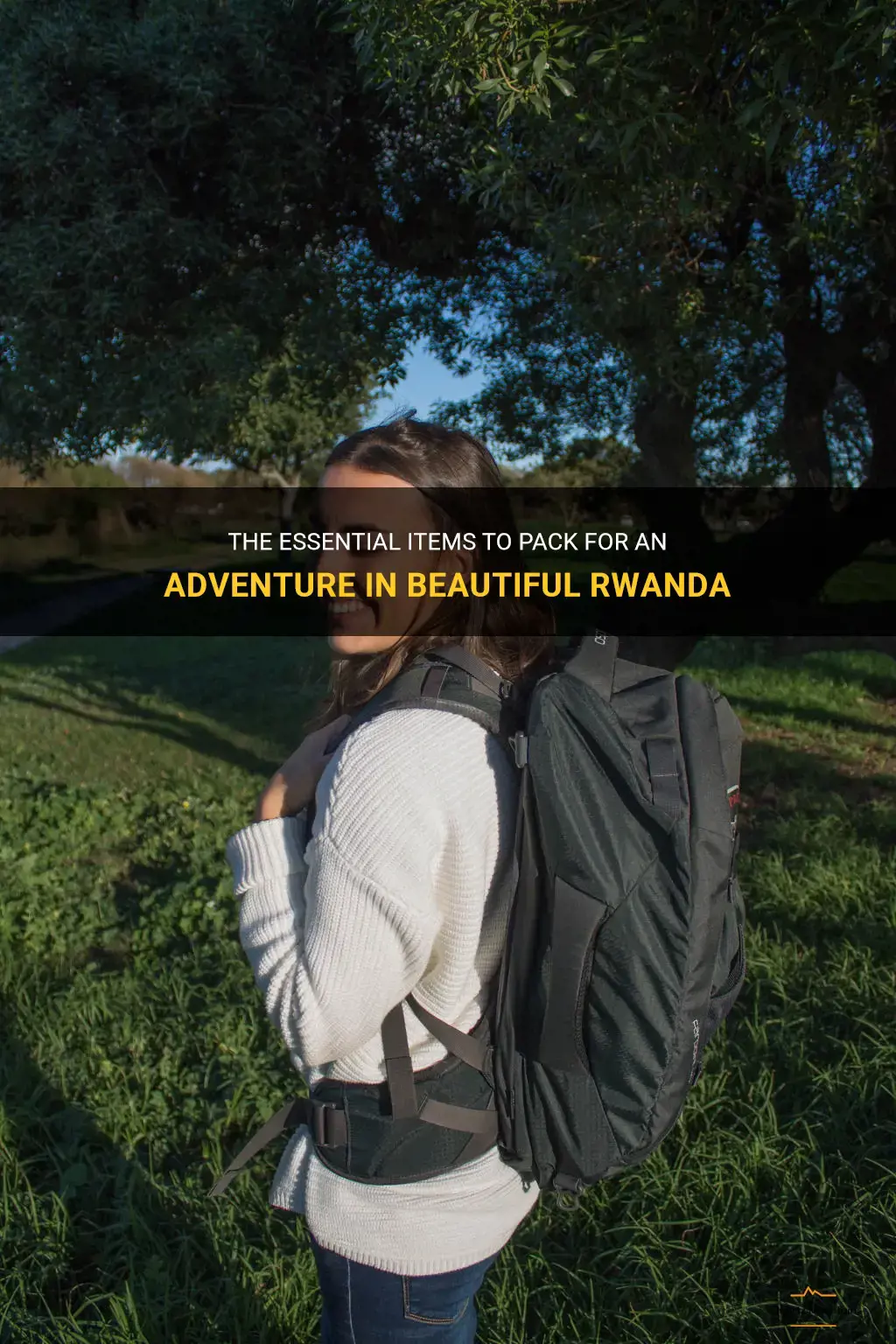
Rwanda, the land of a thousand hills and a multitude of wonders, is a destination that captivates the souls of explorers and nature enthusiasts. From its lush rainforests to its vibrant cities, this East African gem offers a plethora of adventures for those seeking an unforgettable experience. But before embarking on your journey into this enchanting country, it is essential to pack the right gear and essentials to make the most of your adventure. From sturdy hiking boots to insect repellent, this guide will help you prepare for an unforgettable adventure in beautiful Rwanda.
| Characteristics | Values |
|---|---|
| Weather | Warm and tropical |
| Clothing | Lightweight and breathable |
| Shoes | Comfortable walking shoes |
| Medications | Mosquito repellent, malaria pills |
| Passport | Valid passport |
| Visa | Valid Rwandan visa |
| Currency | Rwandan Francs (RWF) |
| Adapter | Type C or J adapter |
| Language | English, French, Kinyarwanda |
| Vaccinations | Yellow fever, Hepatitis A |
| Safety | Travel insurance, emergency contact numbers |
| Toiletries | Toothbrush, toothpaste, soap, shampoo |
| Travel documents | Flight tickets, accommodation bookings, travel itinerary |
| Electronics | Phone, camera, charger |
| Snacks | Energy bars, bottled water |
What You'll Learn
- What are the essential items to pack for a trip to Rwanda?
- Are there any specific clothing items or accessories that should be included in the packing list for Rwanda?
- Are there any medical items or vaccinations that should be packed when traveling to Rwanda?
- What kind of outdoor gear or equipment should be brought when visiting Rwanda?
- Are there any cultural or etiquette items that should be packed to respect local customs in Rwanda?

What are the essential items to pack for a trip to Rwanda?
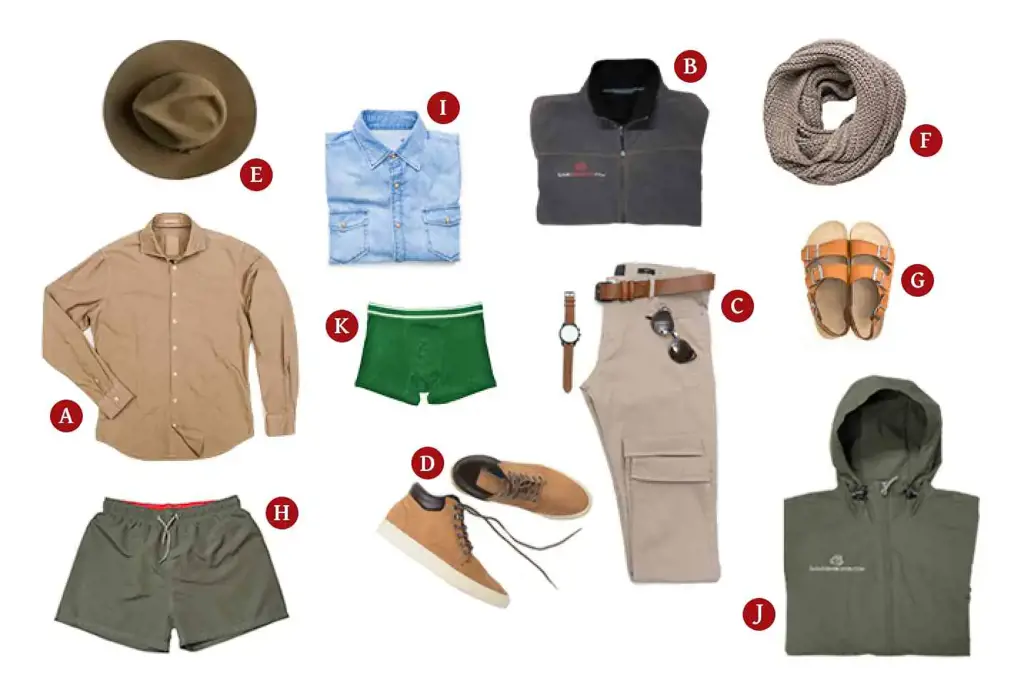
When planning a trip to Rwanda, it is important to pack the essential items to ensure a comfortable and enjoyable experience. Whether you are planning a safari to see the country's abundant wildlife, exploring the lush landscapes or immersing yourself in the local culture, here are some key items to consider packing for your trip:
- Clothing: Rwanda has a moderate climate, with temperatures ranging from 60 to 77 degrees Fahrenheit. It is advisable to pack lightweight and breathable clothing, including shorts, t-shirts, and light trousers. However, it is also important to pack a few warm layers, such as a light sweater or jacket, as temperatures can drop in the evenings and higher altitude areas. Additionally, pack a rain jacket or poncho, as rainfall is common, especially during the wet seasons.
- Comfortable shoes: Rwanda is known for its stunning landscapes and hiking opportunities, so it is essential to pack a pair of comfortable walking shoes or hiking boots. Whether you are trekking through the rainforest to see the endangered mountain gorillas in Volcanoes National Park or exploring the beautiful trails in Nyungwe Forest, having the right footwear will ensure your safety and comfort throughout your adventures.
- Insect repellent: Rwanda is located in East Africa and is home to a variety of insects, including mosquitoes. To protect yourself from mosquito-borne diseases, such as malaria and dengue fever, it is crucial to pack insect repellent. Look for a repellent that contains at least 30% DEET and follow the instructions for application. Additionally, consider packing a mosquito net for added protection, especially if you will be staying in accommodations without air conditioning or window screens.
- Sun protection: The sun in Rwanda can be strong, so it is important to pack sun protection essentials. Make sure to bring a wide-brimmed hat, sunglasses with UV protection, and a high SPF sunscreen. Protecting your skin from the sun's harmful rays will not only prevent sunburn but also reduce the risk of skin cancer.
- Travel adapter: Rwanda uses Type C and Type J electrical outlets. Before your trip, make sure to check the type of outlets used in your home country and pack a travel adapter if necessary. This will ensure that you can charge your electronic devices and stay connected during your trip.
- Medications and first aid kit: It is always wise to pack a small first aid kit containing essentials such as adhesive bandages, antiseptic wipes, pain relievers, and any prescription medications you may need. While travel insurance is highly recommended, having a basic first aid kit can help address minor injuries or illnesses that may occur during your trip.
- Travel documents and money: Don't forget to pack your travel documents, including your passport, visa (if required), and any necessary vaccination certificates. Additionally, it is advisable to carry a photocopy of these documents in case of loss or theft. It is also recommended to have some local currency (Rwandan francs) and a credit card for emergencies or unexpected expenses.
Remember to pack light and bring only the essentials to make your trip to Rwanda more enjoyable. By considering these key items, you will be well-prepared for your adventure in this beautiful African country. Safe travels!
Essential Items to Pack for a November Visit to Phoenix
You may want to see also

Are there any specific clothing items or accessories that should be included in the packing list for Rwanda?
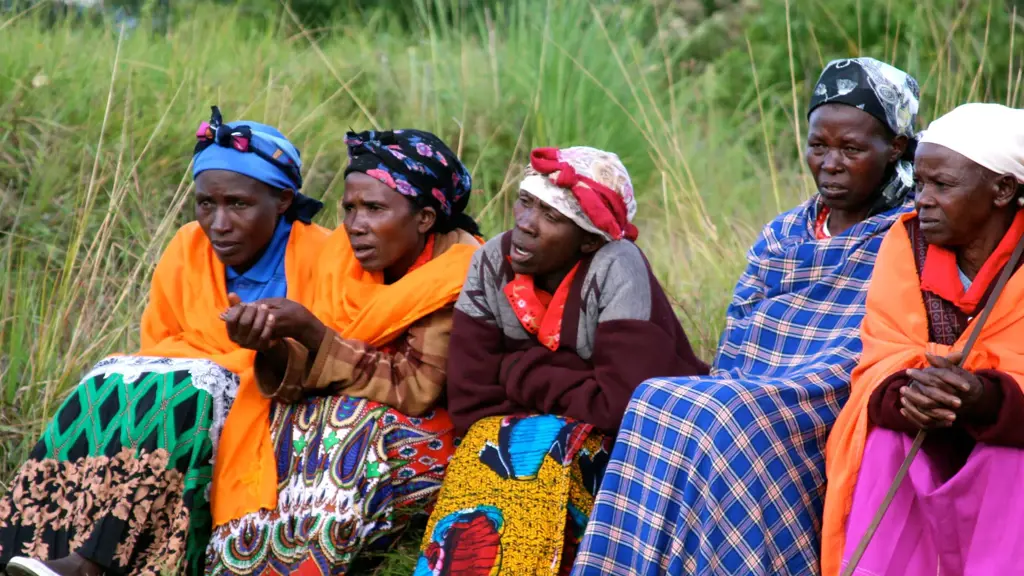
When packing for Rwanda, it is important to consider the climate and cultural norms of the country. Rwanda is located in East Africa and has a diverse landscape that ranges from tropical rainforests to mountainous regions. Here are some specific clothing items and accessories that you should include in your packing list for Rwanda:
- Light, breathable clothing: Rwanda has a warm and tropical climate, so it is best to pack lightweight and breathable clothing. Opt for natural fabrics such as cotton or linen to keep cool in the hot weather. It is also a good idea to pack long-sleeved shirts and pants to protect yourself from insects and the sun.
- Rain gear: Rwanda has a rainy season that typically runs from March to May and October to December. Pack a lightweight rain jacket or poncho to stay dry during sudden downpours. It is also a good idea to bring a waterproof bag or pouch to protect your electronics and other valuables.
- Comfortable walking shoes: Rwanda is known for its beautiful national parks and hiking trails. If you plan on exploring these areas, make sure to pack a comfortable pair of walking or hiking shoes. Choose shoes with good traction to navigate the uneven and sometimes slippery terrain.
- Hat and sunglasses: The sun can be quite strong in Rwanda, so it is important to protect your skin and eyes. Pack a wide-brimmed hat to shield your face and neck from the sun. Sunglasses with UV protection are also essential to protect your eyes from harmful rays.
- Modest clothing for cultural sensitivity: Rwanda is a conservative country, and it is important to dress modestly, especially when visiting religious or cultural sites. Pack clothing that covers your shoulders and knees to show respect for the local customs. This may include light long-sleeved shirts, long skirts, or trousers.
- Swimsuit: If you plan on visiting the beautiful lakes and waterfalls in Rwanda, don't forget to pack a swimsuit. Some accommodations may also have swimming pools where you can relax and cool off.
- Insect repellent: Rwanda is home to mosquitoes and other insects that can transmit diseases such as malaria. It is essential to bring a good quality insect repellent that contains DEET or another effective active ingredient. Apply it to exposed skin and clothing to prevent insect bites.
- Travel adapter: Rwanda uses Type C and J electrical outlets, so make sure to pack a universal travel adapter to charge your electronic devices.
Remember to check the weather forecast for your travel dates and plan your clothing accordingly. It is also a good idea to pack a small first aid kit with essentials such as band-aids, antiseptic cream, and any necessary medication. By packing the right clothing items and accessories, you can have a comfortable and enjoyable trip to Rwanda.
Essential Items to Pack for Traveling to Malaysia in April
You may want to see also

Are there any medical items or vaccinations that should be packed when traveling to Rwanda?
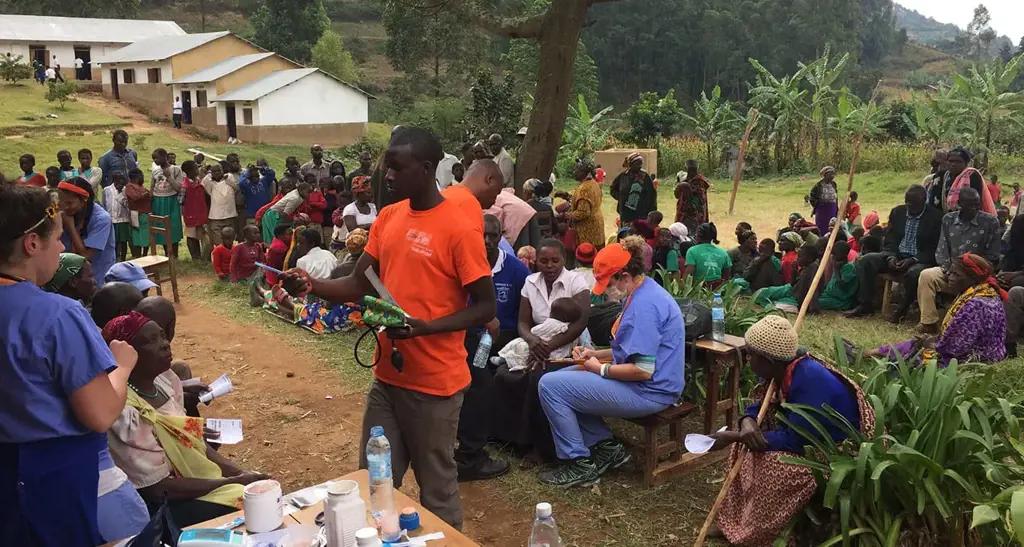
Yes, there are several medical items and vaccinations that should be considered when traveling to Rwanda. Rwanda is a beautiful country located in East Africa, known for its stunning landscapes and abundant wildlife. However, like any other travel destination, it is important to take precautions to ensure your health and safety during your trip.
Before traveling to Rwanda, it is recommended to consult with a travel medicine specialist or visit a travel clinic. They can provide personalized advice based on your individual health status and travel itinerary. It is also advisable to schedule an appointment well in advance, as some vaccinations may require multiple doses over a certain period of time.
One of the most essential vaccinations for travelers to Rwanda is the yellow fever vaccine. This vaccine is required for entry into Rwanda and must be administered at least 10 days before your arrival. Proof of vaccination, in the form of a yellow fever vaccination certificate, may be requested upon arrival at the airport.
In addition to the yellow fever vaccine, other recommended vaccinations include:
- Routine vaccinations: Make sure you are up to date with routine vaccinations such as measles-mumps-rubella (MMR), diphtheria-tetanus-pertussis, varicella (chickenpox), and polio. These vaccinations are important for overall health and can help prevent common diseases.
- Hepatitis A: This vaccine is recommended for travelers to Rwanda, as the country has a moderate risk of hepatitis A transmission. Hepatitis A is a viral infection that can cause fever, abdominal pain, and jaundice.
- Typhoid: The typhoid vaccine is recommended for travelers visiting areas with poor sanitation and limited access to clean water and food. Typhoid fever is a bacterial infection that can cause high fever, headache, and gastrointestinal symptoms.
- Rabies: If you plan on participating in activities that may bring you into close contact with animals, such as wildlife viewing or volunteer work with animals, you may consider getting the rabies vaccine. Rabies is a deadly viral infection that can be transmitted through the bite or scratch of an infected animal.
Apart from vaccinations, it is important to pack certain medical items for your trip. These may include:
- Prescription medications: If you take any prescription medications, ensure that you have an ample supply to last throughout your trip. It is also recommended to carry a copy of your prescriptions, as well as a letter from your healthcare provider explaining your medical condition and the need for the medication.
- Over-the-counter medications: It is useful to pack some over-the-counter medications for common ailments such as pain relievers, antidiarrheal medication, antihistamines, and sunscreen.
- Insect repellent: Rwanda is a malaria-endemic country, so it is important to take precautions to prevent mosquito bites. Pack a good quality insect repellent containing DEET and use it regularly to protect yourself from mosquito-borne diseases.
- First aid kit: It is advisable to carry a basic first aid kit containing items such as band-aids, antiseptic solution, adhesive tape, and a thermometer. This can come in handy for minor injuries or illnesses during your trip.
In conclusion, when traveling to Rwanda, it is important to take certain medical precautions. This includes getting the required vaccinations, such as the yellow fever vaccine, as well as considering other recommended vaccines such as Hepatitis A, typhoid, and rabies. Additionally, packing essential medical items such as prescription medications, over-the-counter medications, insect repellent, and a basic first aid kit can help ensure your health and safety during your trip. Remember to consult with a travel medicine specialist or visit a travel clinic before your trip to get personalized advice based on your specific needs and travel itinerary.
The Ultimate Guide to Packing for Long Term Backpacking Adventures
You may want to see also

What kind of outdoor gear or equipment should be brought when visiting Rwanda?

When planning a trip to Rwanda, it is important to consider the outdoor gear and equipment that you will need. This beautiful country offers a wide range of outdoor activities, including hiking, wildlife watching, and exploring the stunning landscapes. To make the most of your trip, here are some recommendations on what kind of gear and equipment to bring with you.
Hiking Boots:
Rwanda is famous for its lush green mountains and stunning hiking trails. If you plan on exploring these areas, a sturdy pair of hiking boots is essential. Look for boots with good ankle support and a durable sole, as you may encounter uneven terrain and slippery slopes. It is also important that your boots are comfortable and well-fitting to prevent blisters and foot pain.
Lightweight Clothing:
Rwanda has a subtropical highland climate, with temperatures ranging from 20°C to 25°C (68°F to 77°F) during the day and cooler temperatures in the evenings. It is advisable to pack lightweight clothing that is breathable and quick-drying. Opt for long-sleeved shirts and pants to protect yourself from the sun and insects. Don't forget to pack a lightweight rain jacket, as rainfall is common in Rwanda.
Insect Repellent:
Rwanda is home to a variety of insects, including mosquitoes that can carry diseases such as malaria. It is important to protect yourself from insect bites by using a good quality insect repellent. Look for a repellent that contains at least 20% DEET and apply it to exposed skin before heading outdoors. You may also want to consider bringing a mosquito net for sleeping, especially if you plan on camping or staying in rural areas.
Binoculars:
Rwanda is known for its incredible wildlife, including the critically endangered mountain gorillas. Binoculars can enhance your wildlife watching experience by allowing you to observe animals from a distance without disturbing them. Look for binoculars with a good zoom range and image stabilization for the best viewing experience.
Backpack:
A good quality backpack is essential for carrying your gear while exploring Rwanda's outdoor attractions. Look for a pack with a comfortable fit, supportive straps, and multiple compartments for organizing your belongings. Ensure that your backpack is waterproof or has a rain cover to protect your gear from the elements.
Water Bottle and Water Purification:
Staying hydrated is crucial when engaging in outdoor activities. Carry a reusable water bottle and consider bringing a water purification system to ensure access to safe drinking water. Rwanda's tap water is generally not safe for drinking, so it is important to purify water from natural sources before consuming it.
Sun Protection:
Rwanda is located near the equator, which means the sun's rays can be strong. Protect yourself from the sun by wearing a wide-brimmed hat, sunglasses, and sunscreen with a high SPF. Consider bringing a lightweight, long-sleeved shirt for added sun protection, especially if you have sensitive skin.
By packing these essential outdoor gear and equipment, you will be well-prepared to enjoy a memorable trip to Rwanda. Remember to do your research and tailor your gear to the specific activities you plan to engage in. With the right gear, you can make the most of Rwanda's beautiful outdoors and create unforgettable memories.
The Ultimate Guide to Packing the Perfect Size Baby Clothes for the Hospital
You may want to see also

Are there any cultural or etiquette items that should be packed to respect local customs in Rwanda?
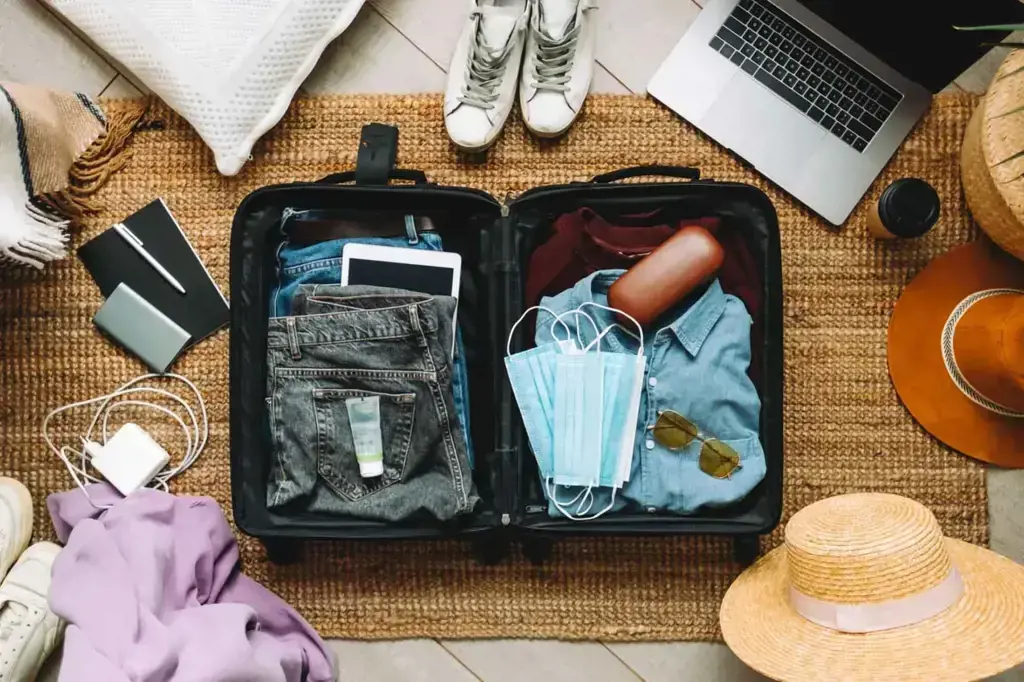
When traveling to a new country, it is important to be aware of the local customs and etiquette in order to show respect to the local culture. This is especially true when it comes to Rwanda, a country with a rich cultural heritage and a strong sense of community. There are a few cultural and etiquette items that you can pack to ensure that you are able to navigate the country without unintentionally causing offense.
First and foremost, it is important to dress modestly and respectfully when in Rwanda. Avoid wearing revealing or tight-fitting clothing, as this can be seen as disrespectful in many parts of the country. Instead, opt for clothing that covers your shoulders and knees, especially when visiting religious sites or rural areas. This shows that you respect and understand the local norms.
Additionally, it is a good idea to pack a few small gifts that you can offer to your hosts or locals that you may meet along the way. This could be something as simple as a pack of pens or a small souvenir from your home country. Gifting is an important part of Rwandan culture and is seen as a sign of kindness and respect. By offering a small gift, you are showing that you appreciate the local culture and are grateful for the opportunity to learn from it.
In Rwanda, greetings are an important aspect of daily life. It is customary to greet others with a handshake and a warm smile. When greeting an older person or someone of high social status, it is respectful to add a slight bow. It is also important to remember to use appropriate language when greeting someone. In Rwanda, the official language is Kinyarwanda, but English and French are also widely spoken. Learning a few basic greetings in Kinyarwanda, such as "muraho" (hello) or "amakuru" (how are you), can go a long way in showing respect for the local culture.
Another important cultural item to pack when traveling to Rwanda is an understanding of the traditional Rwandan cuisine. Rwandan food is known for its simplicity and use of fresh ingredients. The staple food in Rwanda is called "ugali," a thick porridge made from cornmeal or cassava flour. It is typically eaten with various vegetable or meat stews. By familiarizing yourself with the local cuisine and being open to trying new foods, you are showing respect for the local culture and are more likely to have a positive culinary experience.
Finally, it is important to be aware of the customs and traditions surrounding personal space in Rwanda. Rwandans value personal space and may stand at a slightly greater distance than what is typical in Western cultures. It is important to respect personal boundaries and avoid invading someone's personal space unless invited to do so.
In conclusion, when traveling to Rwanda, it is important to pack a few cultural and etiquette items to respect local customs. Dressing modestly, offering small gifts, learning basic greetings, familiarizing yourself with the local cuisine, and respecting personal space are all important ways to show respect for the local culture. By being mindful of these cultural aspects, you will be able to immerse yourself in the rich cultural heritage of Rwanda and have a more meaningful and respectful travel experience.
Essential Items to Pack for a 6-Day Trip
You may want to see also
Frequently asked questions
It is recommended to pack lightweight, breathable clothing for Rwanda, as the country has a warm and humid climate. However, considering the higher elevation in some areas, it is also advisable to bring a few warmer layers for the evenings or if you plan to visit Volcanoes National Park.
For gorilla trekking in Rwanda, it is important to pack long-sleeved shirts and trousers to protect yourself from the thick vegetation and possible insect bites. Additionally, sturdy, comfortable hiking boots or shoes are essential. It is also recommended to bring a rain jacket or poncho, as the weather can change quickly.
In addition to comfortable walking shoes or sneakers for everyday activities, it is advisable to bring sturdy hiking boots or shoes with good traction for any outdoor excursions or hikes, such as gorilla trekking. These will provide better support and grip on uneven terrain.
It is recommended to pack a pair of binoculars for a safari in Rwanda, as they can greatly enhance your wildlife viewing experience. Additionally, a good quality camera with a telephoto lens is essential for capturing those unforgettable moments. Don't forget to also pack a hat, sunscreen, and insect repellent for added protection against the sun and insects.
When visiting the Nyungwe Forest, it is advisable to pack a waterproof jacket or poncho, as the area experiences a higher level of rainfall. It is also important to bring a good pair of walking shoes or boots, as the forest trails can be muddy and slippery. A small backpack, filled with essentials such as water, snacks, and a camera, is also recommended for day hikes in the forest.







